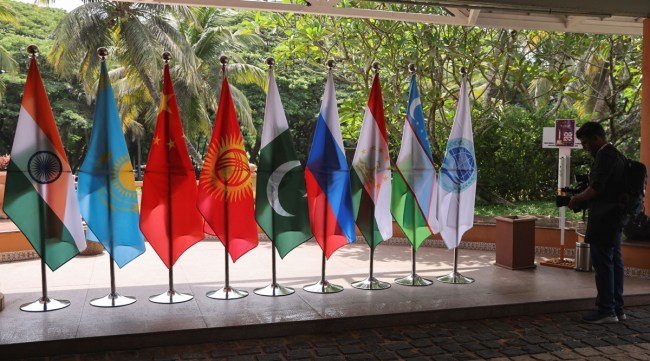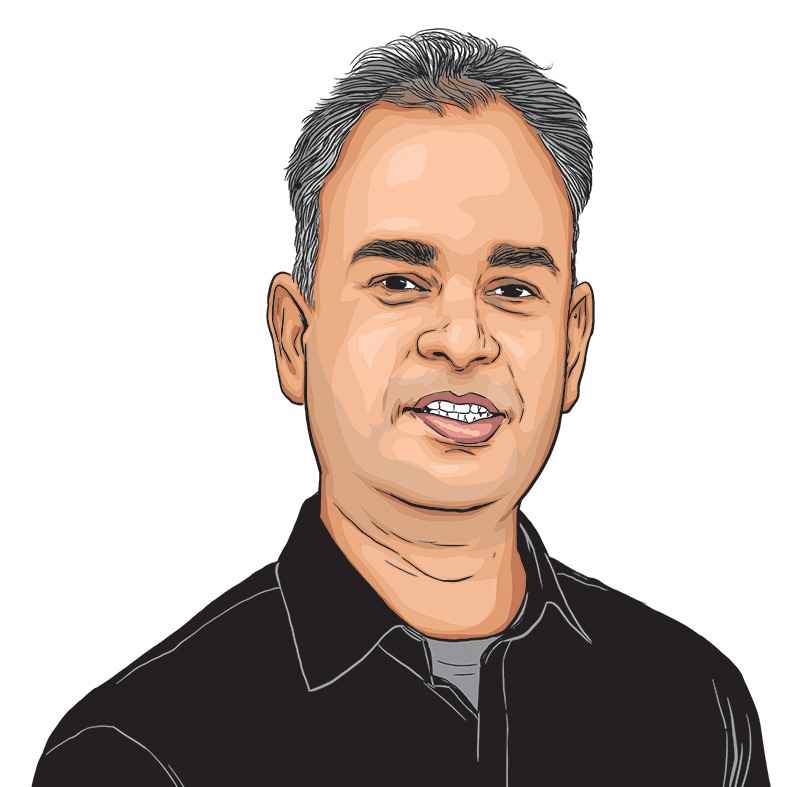Opinion SCO meeting in Goa: The West is wrong – the grouping isn’t blindly pro-Russia
SCO states do not feel morally obligated to endorse either side. A sense prevails that both parties made mistakes
 The SCO states have not condemned Russia’s aggression. However, this does not imply their approval of Moscow’s military intervention.
REUTERS/Francis Mascarenhas
The SCO states have not condemned Russia’s aggression. However, this does not imply their approval of Moscow’s military intervention.
REUTERS/Francis Mascarenhas The Shanghai Cooperation Organisation (SCO) foreign ministers’ meet is taking place in Goa (May 4-5), and Pakistan Foreign Minister Bilawal Bhutto is among those attending. SCO states are in a moral and political quandary over the Russia-Ukraine war. Taking an ideal stance on Ukraine’s “territorial integrity” involves the risk of jeopardising ties with Russia, whereas remaining neutral exposes them to Western wrath. There is no perfect choice; each option has its pitfalls. The SCO states, barring Pakistan, have strong political, military or economic ties with Russia. They do not wish to ruin their relations with Moscow for an issue which is external in their perspective. Nor do they want to offend the West. Consequently, they tread a fine line of “neutrality” over the Russia-Ukraine conflict.
The SCO states have not condemned Russia’s aggression. However, this does not imply their approval of Moscow’s military intervention. SCO leaders have repeatedly underlined the inviolability of territorial integrity — a subtle message to Moscow that borders cannot be altered unilaterally. Further, none has recognised the territories that Russia snatched from Ukraine, not even Crimea. Moreover, members have avoided supplying weapons to Russia. Therefore, suggesting that SCO has backed Russia would be inappropriate.
Western experts criticise the SCO for being sympathetic to Russia and defending an aggressor. However, an in-depth analysis of each state’s policy portrays a far less sympathetic picture. To be sure, the SCO states are not unanimous. Their responses vary from distancing themselves from the war to complete silence to abstentions in UN voting and muted criticisms. However, even China, which the West projects as an ally of Russia, has refrained from supplying weapons to Russia. Hypothetically, would the UK be an ally if it refused to provide weapons to the US in its critical war?
At the SCO Summit at Samarkand in 2022, Vladimir Putin referred to China’s war-related concerns. Those concerns remain unclear, but Beijing was unhappy with a prolonged war and nuclear sabre-rattling. At the same Summit, Prime Minister Narendra Modi stated, “Today’s era is not of war” — a polite way of saying that Russia’s priorities are misplaced. Similarly, Central Asian leaders have expressed their concerns. Therefore, the assertion that SCO stood with Russia is untrue. An appropriate contention would be that the SCO rescued Russia from political and financial isolation. BRICS and SCO have become critical forums for Putin to claim that Russia is not isolated.
The SCO states do not feel morally obligated to endorse either side. A sense prevails that both parties made fatal mistakes. NATO did not anticipate a war, and Moscow hurriedly dispatched its army without exhausting diplomatic options. Further, neither did Russia inform SCO about the intervention nor did the West consult them before imposing sanctions. Therefore, the SCO states have no compunction in pursuing their national interests.
The SCO states are re-aligning their policies, presuming that the schism between Russia and the West will last long. The war would have no real winner and would turn into a frozen conflict. Irrespective of the outcome, Ukraine will remain a source of geopolitical contestation. Therefore, Central Asian states seek to diversify their policies and reduce their dependence on Russia. Conversely, Moscow is pursuing these states to preserve its privileged status in Eurasia. Putin made five trips to Central Asia in 2022.
Moscow’s most formidable task is to assure the Central Asian states that their sovereignty will remain intact. Russia’s intervention in Ukraine has shattered the confidence of Central Asian states. They are the terrified lot. War in Ukraine might also open Pandora’s box of claims and counterclaims in Central Asia. They are wary of a Ukrainian fate in the region. Kazakhstan is most apprehensive due to its long borders with Russia and a sizable Russian minority in its northern areas. Radical nationalists in Russia add fuel to the fire by making provocative statements against Kazakhstan. Moscow is unlikely to pursue expansionism in Central Asia, but perceptions matter as much as reality.
India, as the SCO Chair, can address the concerns of Central Asian states. First, New Delhi must underline the centrality of Central Asia in the SCO. The SCO is the most credible and prestigious organisation for Central Asian states. Big powers like India, China and Russia have other multilateral forums to raise their macro-issues on global governance. But for Central Asian states, the SCO is paramount. Hence, SCO should give preference to Central Asian concerns.
Second, Afghanistan remains fragile, with no signs of stability and development. Terrorist groups and radical organisations are expanding their influence in the Eurasian region. The SCO should shore up mechanisms to ensure stability in Afghanistan and protect the rights of its vulnerable citizens.
Third, terrorism is a common menace for all SCO states. The SCO Regional Anti-Terrorist Structure (RATS) was created to combat terrorism, separatism and extremism. But its role in curbing terrorism is inadequate. It requires a fresh mandate, resources and an action plan to counter terrorism.
Fourth, the SCO can facilitate development by expediting connectivity networks, such as the International North-South Transport Corridor and encouraging regional investment. The Eurasian Union should speed up free trade agreements with SCO members to increase trade and investment.
Fifth, unlike Russia and China, India and Central Asian states do not want SCO to become an anti-West organisation. The grouping can overcome this contradiction if it remains committed to issues specific to Eurasia. And finally, New Delhi may take the lead in creating an SCO Development Bank, as it did for the BRICS. That would add immense credibility to both India and the SCO.
The writer teaches at the School of International Studies, Jawaharlal Nehru University, New Delhi






